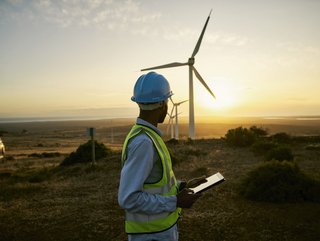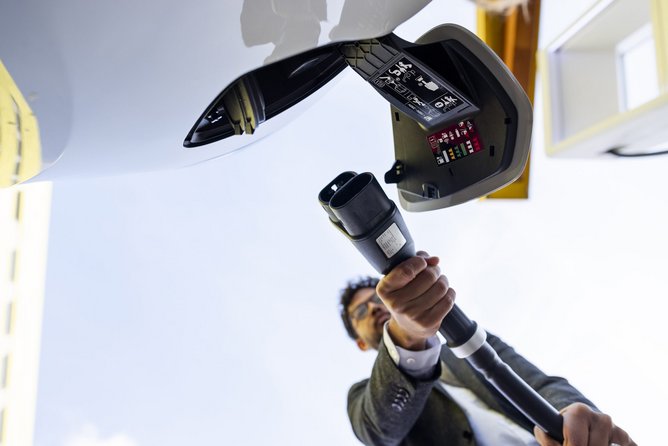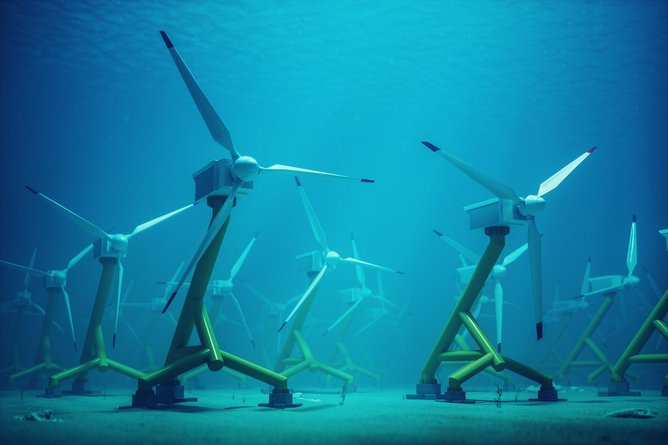
Technology is driving a significant level of innovation, which in turn is enabling some of the most sustainable energy solutions to come to the fore. From artificial intelligence (AI) to the use of data for commercial functions, the energy sector is evolving and more solutions are designed to meet the output of a more demanding energy landscape.
10. Blockchain
Operating as a cybersecurity mechanism in the renewable energy sector, blockchain enables the safe and secure transaction of electricity across a distributed network of power providers. This means that energy can be purchased globally but delivered from a local source with data to show that the energy purchase agreement was sustainable.
Blockchain opened up a multitude of opportunities in the renewables sector to offer peer-to-peer (P2P) electricity trading.
9. Advanced robotics
Providing hands-off capabilities and streamlining processes, robotics are incorporated into a variety of industries, but in energy they optimise energy resources and help providers to manage their contributions to the grid more efficiently.
Robotics is also providing exciting opportunities in energy surveying, allowing the use of drones for site inspections, prospective site assessments, which is improving time-to-operations on new sites as well as safety on existing sites.
8. Green hydrogen
Hydrogen gas is a renewable source of energy with a high density and is used in some applications already, including zero-emission transport. As a result, organisations are developing more sustainable methods of producing the gas for further use in the energy landscape, such as hydrogen fuel-cell applications—a solution that isn’t yet suitable as it struggles with the issue of low energy conversion efficiency.

7. Grid integration
To overcome the issue of energy delays and distribution losses in the supply chain, grid integration is key for enabling better control of electricity. Energy-efficient grid technologies are used, such as Gallium Nitride (GaN) and Silicon Carbide (SiC) semiconductors to control the flow of energy as micro-controllers.
This solution supports electric vehicles (EVs), enabling vehicle-to-grid (V2G) stability, resulting in some of the latest capabilities we see today—grid optimisation and bi-directional charging.
6. Bioenergy
Perhaps the most environmentally conscious solution on the planet, biomass is a solution for producing energy from biomass products. These materials are circular as they originate from natural materials, such as waste from cattle and crops, and are used to produce viable liquids and gases for energy generation.
The most common biofuel conversion processes include hydrothermal liquefaction (HTL), pyrolysis, plasma technology, pulverisation, and gasification.
5. Wind energy
Either onshore or offshore, wind energy is one of the most reliable solutions for renewable energy and the International Energy Agency (IEA) forecasts that this form of energy tech will produce nearly 8,000 terawatt-hours of energy globally in 2030.
These solutions are commonly seen sparsely on land, but also leverage the high-wind environment at sea with a number of offshore sites used globally.

4. Hydro power
Generating energy from hydro power turbines is a solution leveraged in environments where water is high-following. Alongside this, ocean-based tidal energy makes the most of the harshest environments on the planet.
According to the Department of Energy, hydroelectric power accounted for a total of 28.7% renewable energy production across the US—and around 6.2% of its overall power.
3. Distributed energy storage systems
Startups are offering battery and batteryless solutions for distributed energy storage systems (DESS), which help energy providers to generate and store energy in a decentralised way and overcome irregularities in production. One of the latest solutions in the discussion is solid-state batteries, which are lightweight and have a higher energy density.
2. Artificial intelligence and big data
The tem ‘data is the new gold’ has been heard extensively, but this still applies, particularly in the energy sector where big data informs all decisions and transactions and is supported by AI to enable efficiency and predictive maintenance across large energy sites and networks.
Grid analytics and management are the key points here as the renewable energy sector looks to provide a consistent and optimised flow of electricity.
1. Advanced photovoltaics
Receiving a significant amount of investment globally, solar photovoltaic (PV) technologies is now a higher level of interest for governments than fossil fuels. As the world switches over to renewables, integrated PV, floatovoltaics, and agrivoltaics are the logical answers to some of the world’s most pressing energy challenges.
These solutions are ever evolving and, as the demand for sustainable energy grows, systems are developed to optimise them and pack more energy sequestration capacity into smaller packages.






